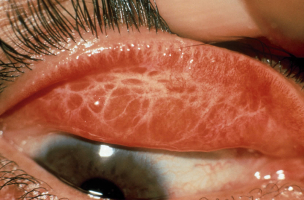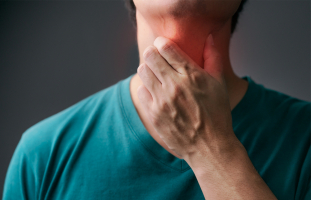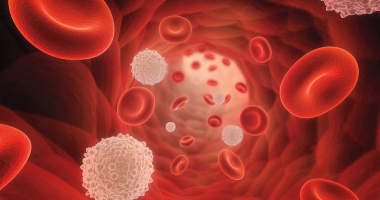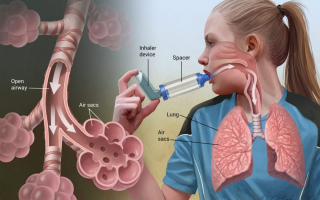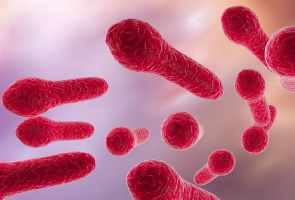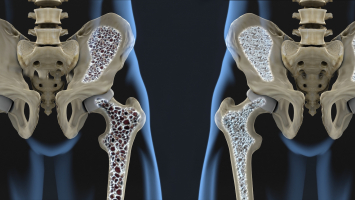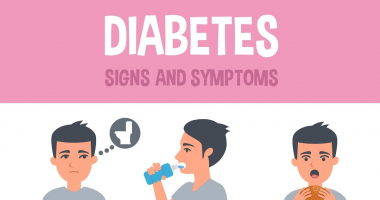Top 10 Signs and Symptoms of Food Poisoning
Food poisoning is an illness caused by taking bacteria, viruses, or parasites in foods or beverages. It is quite common, affecting an estimated 9.4 million ... read more...people in the United States each year. Below are some of the Signs and Symptoms of Food Poisoning!
-
Abdominal pain is discomfort or other uncomfortable sensations that you feel in your belly area. Abdominal pain is felt in the area of the body's trunk, which is below the ribs but above the pelvis.
Harmful organisms can create toxins that irritate the lining of your stomach and intestines in cases of food poisoning. This can create painful inflammation in your stomach, which can lead to abdominal pain. When you get food poisoning, your abdominal muscles contract to speed up your bowel's natural movements so you can get rid of the hazardous organisms as fast as possible. Another symptom is stomach cramps. After eating, stomach (or abdominal) cramps might feel dull or sharp, and they can last for many hours, it can cause diarrhea in some people. Food poisoning, dairy or gluten intolerance, or a stomach bug might all be factors that contribute.

Abdominal Pain and Cramps 
Abdominal Pain and Cramps -
Diarrhea is defined as three or more watery, loose bowel movements in a 24-hour period and is characterized by watery, loose stools. It's a common sign of food poisoning. It happens when your bowel becomes less effective at reabsorbing the water and other fluids it secretes during digestion due to inflammation. Other symptoms that may accompany diarrhea include a sense of urgency while going to the toilet, bloating, or stomach cramps.
You're in danger of dehydration because you lose more fluid than usual when you have it. As a result, it's critical to stay hydrated by drinking enough of water. If you can't tolerate solid foods, sipping liquid foods like broths and soups can help you stay hydrated and give you a boost of energy. Monitor the color of your urine to see whether you're dehydrated. It should be light yellow or clear. Dehydration may be indicated if your urine is darker than this.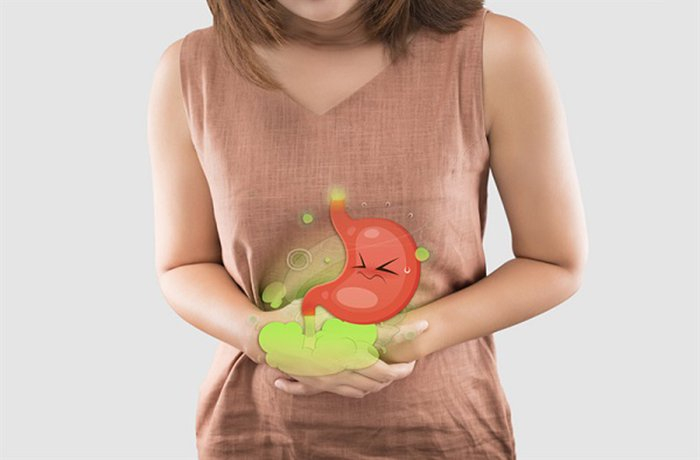
Diarrhea 
Diarrhea -
Headaches are quite common. They can be caused by a variety of factors, including stress, excessive alcohol consumption, dehydration, and exhaustion.
Food poisoning can result in gut inflammation as well as an increase in markers of inflammation throughout the body. Inflammation is linked to migraine headaches. Besides that, food poisoning can cause you to feel tired and dehydrated, which can contribute to a headache. It has been suggested that dehydration can have a direct impact on your brain, causing it to lose fluid and shrink temporarily. If you're vomiting or have diarrhea, both of which increase your risk of dehydration, you're more likely to get a headache.

Headaches 
Headaches -
The violent voluntary or involuntary emptying ("throwing up") of stomach contents through the mouth is referred to as vomiting. Vomiting is a natural response for those who have food poisoning.
When your abdominal muscles and diaphragm contract strongly, you are forced to pull up the contents of your stomach and pass them out through your mouth involuntarily. It's a defensive process that happens when your body tries to rid itself of potentially hazardous organisms or toxins. In fact, food poisoning is frequently followed by a bout of, projectile vomiting. Some people's vomiting ceases, while others continue to vomit on a regular basis. To avoid becoming dehydrated, seek advice from a doctor or pharmacist if you're vomiting often and can't keep fluids down.

Vomiting 
Vomiting -
Food poisoning is characterized by a loss of appetite as well as other signs of disease, such as exhaustion. As your immune system fights the infection that has infiltrated your body, this happens.
Your body responds by releasing chemical messengers known as cytokines. Cytokines have a variety of functions, one of which is to regulate your body's immune response to infection. They do this by directing your immune cells on where to go and what to do. Cytokines convey messages to the brain and cause many of the symptoms associated with sicknesses, such as lack of appetite, fatigue, and aches and pains, in addition to helping your body fight an infection like food poisoning. As a result of this group of symptoms, you may withdraw from social activities, rest, and stop eating, which is referred to as "sickness behavior." Sickness behavior indicates that your body is diverting its attention away from other body processes, such as digestion, in order to concentrate on battling an infection.

Generally Feeling Sick 
Generally Feeling Sick -
If your body temperature increases over the typical range of 97.6–99.6°F (36–37°C), you have a fever. Fevers are common in a variety of conditions and are your body's natural defense against infection.
The rise in temperature is caused by pyrogens, which are fever-producing substances. Your immune system or the pathogenic bacterium that has entered your body releases them. They cause a fever by sending messages to your brain that make it to think your body is cooler than it actually is. As a result, your body produces more heat and loses less heat, causing your temperature to rise. This rise in temperature causes your white blood cells to become more active, which helps in the battle against infection.

Fever 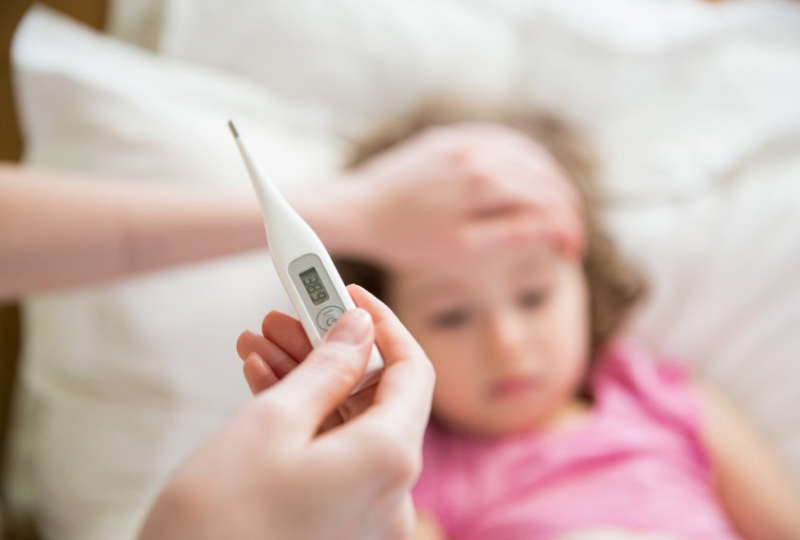
Fever -
Chills are a natural mechanism for your body to raise its core temperature. Chills are caused by cold weather, viruses, infections, and other illnesses. Shivering causes your muscles to relax and contract. Your body heats up as a result of this unintentional activity. When you have chills, you may: shiver or tremble; shake; have chattering teeth; or have goosebumps (also known as gooseflesh or goose pimples).
Pyrogens trick your body into thinking it's cold and wants to warm up, therefore they frequently accompany a fever. But chills aren't experienced by everyone who has a fever. You can have chills even if you don't have a fever. Chills are a typical sign of a fever, which can be caused by a variety of illnesses, including food poisoning.

Chills 
Chills -
Weakness is defined as a lack of physical or muscular strength, as well as the sensation that moving your arms, legs, or other muscles requires more effort. While fatigue is a feeling of fatigue or exhaustion, as well as a need to rest, caused by a loss of energy or strength.
Food poisoning can also cause weakness and fatigue. The release of chemical messengers known as cytokines causes these symptoms. Additionally, you may feel tired if you eat less owing to a loss of appetite. Sickness behavior includes both weakness and fatigue, which allows your body to rest and focus on getting better. In fact, they can be signs of a variety of different illnesses. So, if you're feeling fatigued or weak, the greatest thing you can do is listen to your body and take a break.

Weakness and Fatigue 
Weakness and Fatigue -
Nausea is the unpleasant sensation of being about to vomit, whether or not you actually do. While nausea is common in cases of food poisoning, it can also occur from a variety of causes, including migraines, motion sickness, and overeating.
Nausea caused by food poisoning usually appears one to eight hours after a meal. It acts as a warning to your body that something potentially harmful has been ingested. It might be made worse by a slowing of your bowel movement, which occurs when your body tries to keep the toxin in your stomach. If you're feeling nauseated, consider some of natural cures to help relieve your symptoms.

Nausea 
Nausea -
When you have an infection like food poisoning, your muscles might hurt. Because your immune system has been activated, inflammation has resulted.
During this process, your body produces histamine, a substance that helps widen blood vessels so that more white blood cells can fight the infection.Histamine helps in the restoration of blood flow to infected areas of the body. Histamine, like other immune-related substances like cytokines, can move to other regions of your body and trigger pain receptors. This can make particular sections of your body more sensitive to pain, leading to the dull pains that come with sickness.

Muscle Aches 
Muscle Aches













